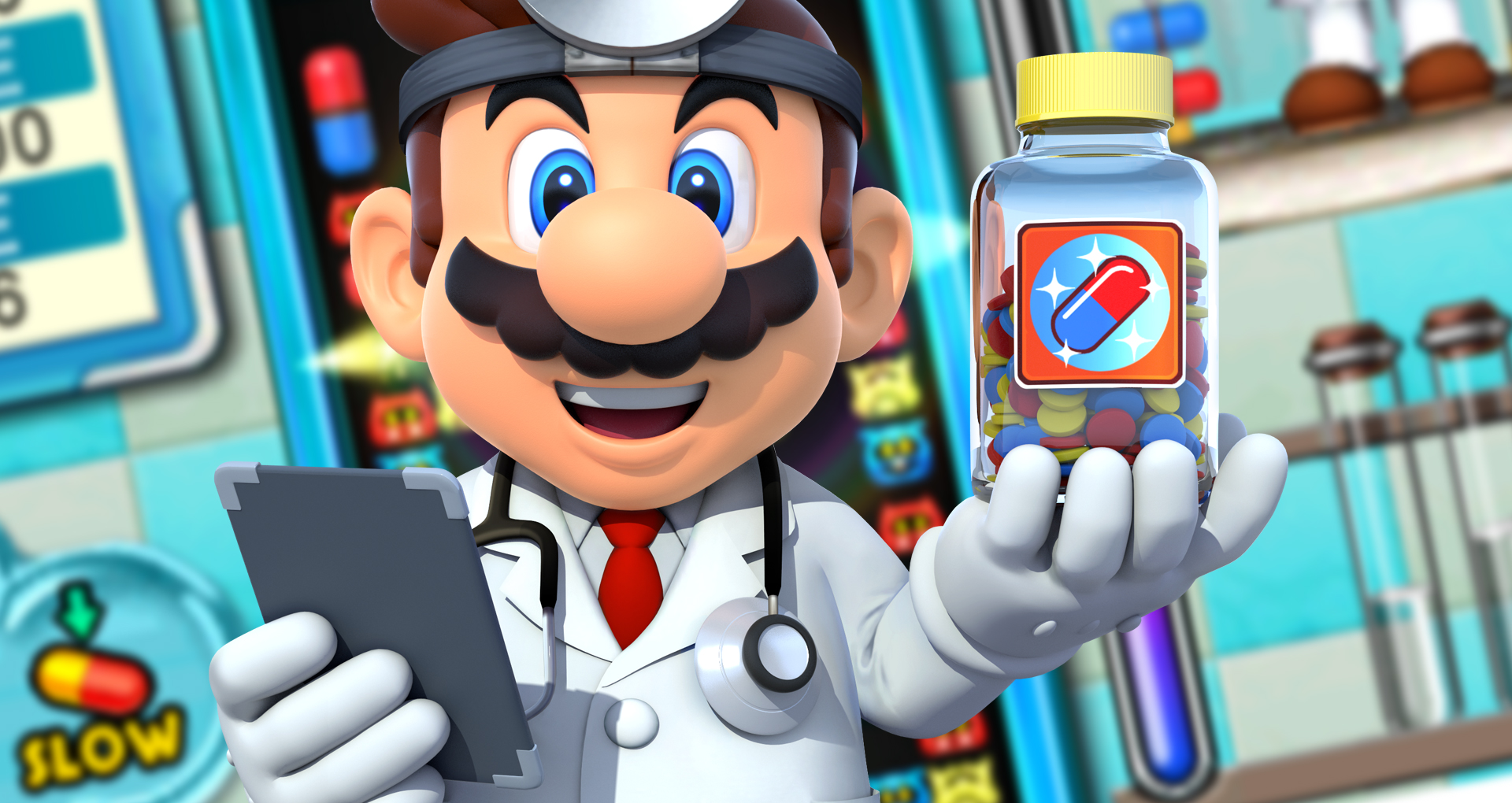GamesRadar+ Verdict
The new Miracle Cures add welcome new flourishes to the classic puzzle gameplay, and the sheer wealth of content on offer makes this a bargain. Even once you've ignored the awful Luigi bits.
Pros
- +
Familiar puzzle fun with new twists
- +
New Miracle Cure power-ups
- +
Download Play for local co-op
Cons
- -
Dr. Luigi mode
Why you can trust GamesRadar+
The Mario brothers are back, moonlighting as a pair of doctors whose medical credentials are as questionable as their plumbing skills. Considering we’ve never seen Mario do so much as write up an estimate for a new en-suite, watching him throw a cocktail of drugs into a bottle of viruses in the hopes of eradicating them with enough blows to their tiny, germy noggins isn’t too far-fetched. Luckily, he has the help of a new Miracle Cure this time around, so you can relax - he’s still a few years away from wiping out the species. Probably.
There are three modes in the game. The Miracle Cure Laboratory lets you play through a total of 50 stages, split over a tutorial, basic and advanced levels, that introduce you to the various Miracle Cures. You’ll play a mixture of the series’ standard Dr. Mario mode, the Wii U’s Dr. Luigi mode - which replaces the pills with L-shaped capsules - and vs. mode that pits you against the AI.
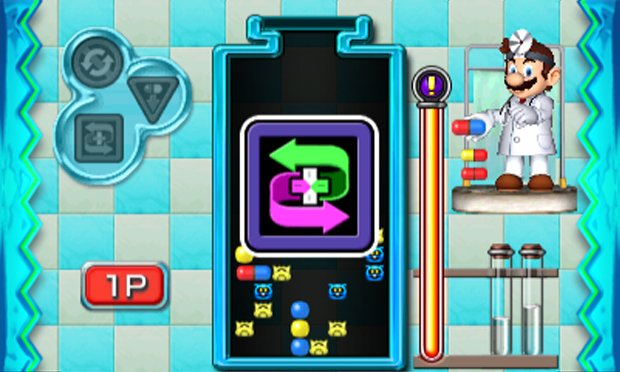
The Miracle Cures themselves range from AOE Exploder bombs, Capsule and Virus Blasters that clear all capsules and viruses of the same colour, and line-clearing Zappers. These cures are randomised and have been stirred into the mix to keep the formula fresh, and they do a bang up job, conjuring up nail-biting moments of anticipation as you pray the one you desperately need will drift down through the neck of the bottle before it suffers a fatal overdose. The effect when you chain a bunch of Miracle Cures is gleefully satisfying, both visually and - yes, dammit - emotionally too but, unfortunately, I rarely saw such wondrous occurrences.
While the single-player mode will top you up with Blasters, Zappers, and Exploders, the vs. battles will let you sabotage your nemesis with Reversers that invert the controls, Lockers that disable pill rotation, and Boosters that increase the speed of falling capsules. Rather than seeking out a destitute Willy Wonka - down on his luck in a grotty back alley - for a handful of these confections, you just need to fill up the Miracle Cure meter. This feat is laughably easy to achieve, as every time a pill hits the bottle, the meter starts to rise. Chains and combos speed up the process, but the game is as eager to push them on to you as the aforementioned Mr. Wonka, desperate for enough cash to cover a straw of special sherbert and the warm embrace of an Oompa-Loompa for the night.
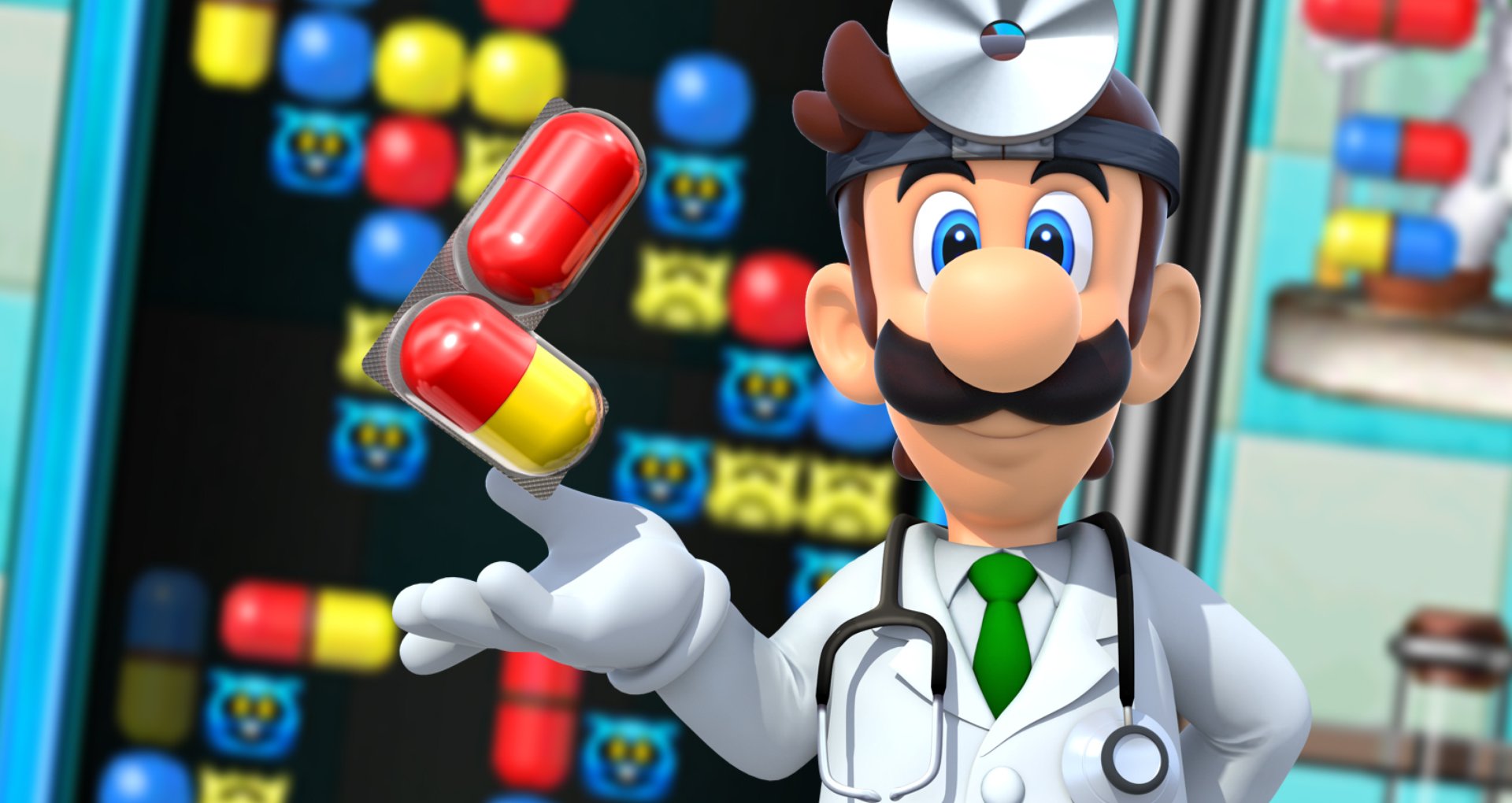

The distinctive Dr. Mario Fever theme that has permeated the series for the last 15 years doses your ears with an acoustic wash of nostalgia, while the Germ Buster mode makes use of the only redeeming feature of Dr. Luigi’s Wii U debut - the trance-like remix of the melody that’s surely the product of a fever dream after prolonged exposure to the infamous Operation L gameplay.
If it all looks like it could get too samey, fear not. Progress is kept interesting with juiced-up game speed and varying amounts of viruses festering in the bottle, along with increased focus on certain aspects like chains and combos, or a particular Miracle Cure. These levels are engineered to hone your skills and familiarise you with the mechanics, as is common practice with Nintendo games.
The Custom Clinic lets you choose between Dr. Mario, Dr. Luigi and Germ Buster mode, tailoring the level of viruses and game speed to your tastes - although these options only apply when Miracle Cure is turned off. Dr. Mario mode is entertaining enough, but seems a bit lacklustre once you dive into Germ Buster. What first appears to be an overly simple touchscreen and stylus adaptation with cheap gimmicks (like dragging half a capsule around willy nilly after clearing its other half from the field - and even sliding them through other capsules), actually makes for more challenging and fast-paced gameplay. You find yourself frantically tossing pills around and setting up elaborate chains and combos that rely solely on your mongoose-like reflexes to carry off - and if you don’t end up giving yourself a coronary, it’s addictive fun at its finest.
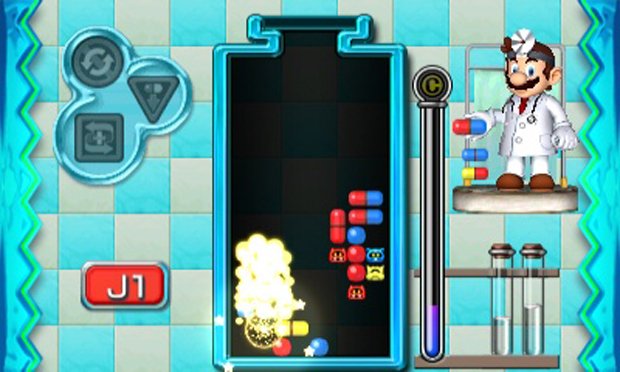
Dr. Luigi mode, however, is Luigi incarnate. It first made an appearance during the Year of Luigi (don’t get me wrong, I celebrated his time in the limelight) but ‘Operation L’ mode - with ludicrously L-shaped capsules floating into view in cut-out style outlines because apparently someone couldn’t figure out how to pop them out of the foil first - is terrible. Long, awkward, and clunky, you could slap a moustache onto one of the things and market it as distilled essence of Luigi.
Rather than presenting a more challenging alternative to the regular capsule mode, it feels like bad design shoehorned in as a nod to a bumbling character during his time in the spotlight. On the other hand, it could be a completely meta homage to an overlooked and underestimated soul who is more complex than we could have ever imagined. Or I’ve been exposed to one too many of those dodgy pills.
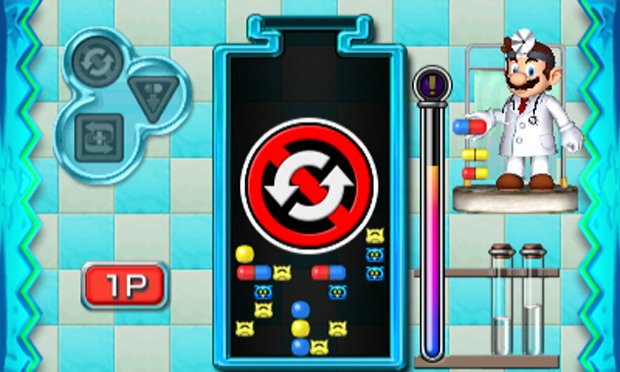
If you tire of the AI and want a decent versus battle, you can dabble in a little online or local play. You can choose between Dr. Mario or Dr. Luigi mode, opting to have the Miracle Cures turned on or off. My average time waiting for an adversary was six minutes, but this could be down to the fact that the game wasn’t released in Europe at the time of this review. I’d also like to believe that the two week head start my Japanese opponent had is the reason for the sound thrashing I received within seconds of the battle starting. It’s very possible that they may have been an actual doctor, in which case, I never stood a chance.
Overall, Dr. Mario: Miracle Cure is solid enough, and while it’s not earth-shattering in its originality, the nuances in gameplay brought about by the Miracle Cure power-ups and the addition of Dr. Luigi mode - whether you want it or not - has certainly livened things up since the last time the plumber donned a white coat in Dr. Mario Express. How a couple of so-called handymen are continually able to pull off this charade is anyone’s guess. It’s almost as mystifying as a plumber whose first instinct upon seeing misplaced piping is to squat on top of it.
More info
| Genre | Puzzle |
| Description | Mario dons his white coat and other medical paraphernalia and concocts a new entry in the classic pill-matching series, this time for 3DS. |
| Platform | "3DS" |
| Release date | 1 January 1970 (US), 1 January 1970 (UK) |
